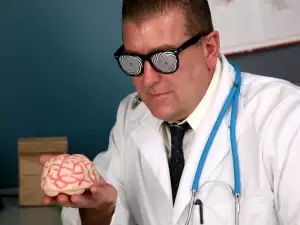In 1969, American psychologist Dr. David Rosenhan began an experiment whose results would question the reliability of psychiatric aid. Basically, Rosenhan asked the question of whether therapists were able to differentiate between crazy and normal people, with the results ultimately showing that they could not.
The psychologist conducted a unique experiment with the participation of 8 individuals, among them Rosenhan himself. The group visited several different federal psychiatric clinics in the US, while playing the role of persons having mental disorders.
The participants in the Rosenhan Experiment were instructed to tell the psychiatrists that they heard voices and experienced hallucinations. None of the pretend patients could have imagined that they would become hospitalized in the clinic as easily as they were.
Every single one of them was diagnosed as schizophrenic and despite most of them believing that their deception would be revealed, that was not the case. Each of them was diagnosed as having a serious mental illness.
The doctors did not understand that the patients were pretending, their diagnoses based solely on the claim that the pseudopatients were hearing voices. Hospital staff also believed that the patients did indeed suffer from schizophrenia.

According to Rosenhan, the psychiatrists placed their diagnoses based solely on the medical definition of the disorder and ignored the fact that the participants in the experiment did not actually exhibit the typical behavior of those who genuinely suffer from it.
And while the doctors were unable to tell the difference between the sane and the insane, the actual schizophrenic patients picked them out without error. Each of the pseudopatients was exposed by an actual patient from the psychiatric clinic they were in.
Ultimately, the volunteers in the experiment spent a total of 52 days in their clinic, after which the doctors realized they were in remission and released.
When Rosenhan revealed his conclusions, sensation struck. Society was in shock by the apparent unreliability of the psychiatrists, who were fooled so easily.
Rosenhan's colleagues blamed him that the participants had prepared their act ahead of time, stating that the self-evaluation of the patient at the time was a cornerstone of placing a diagnosis.














